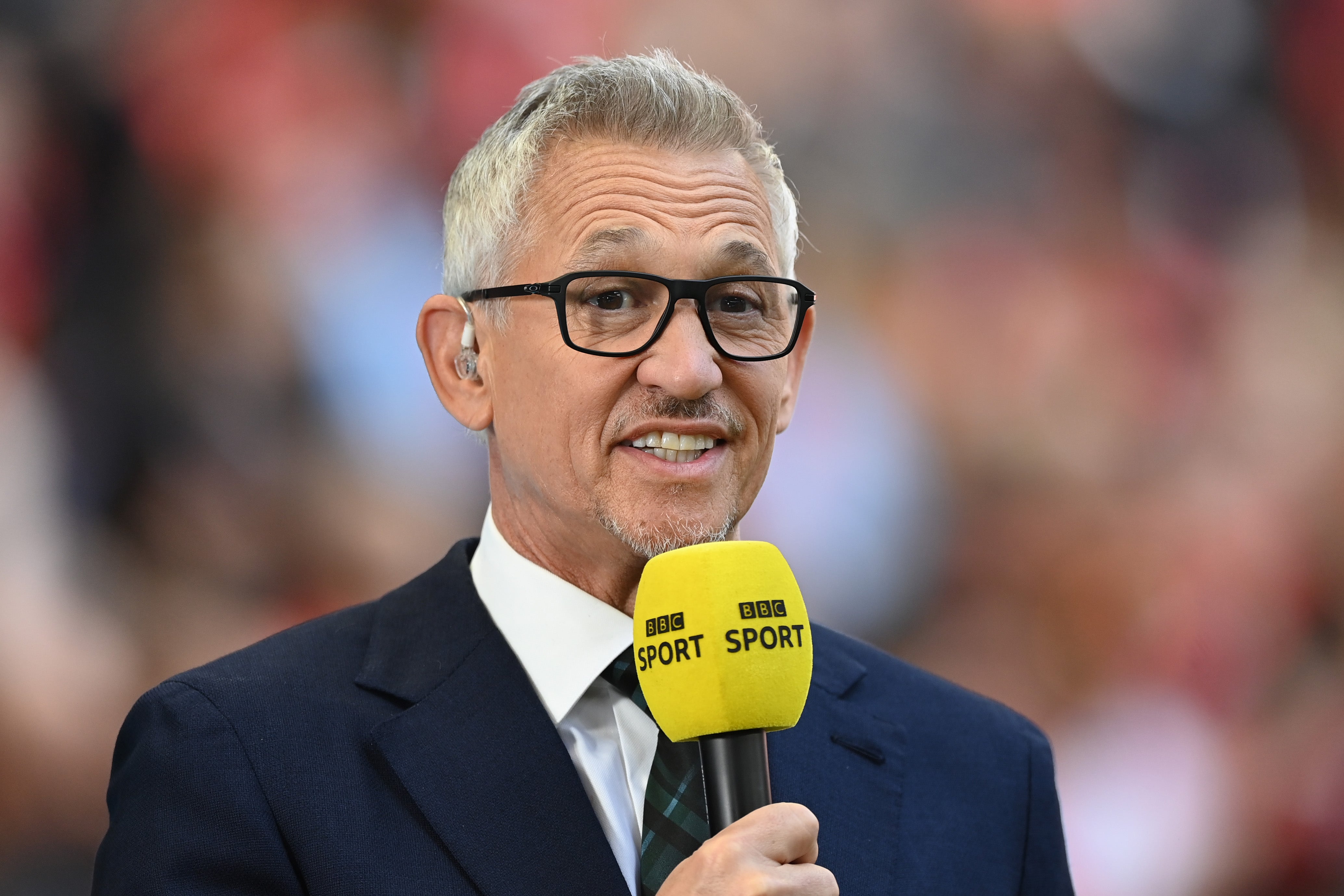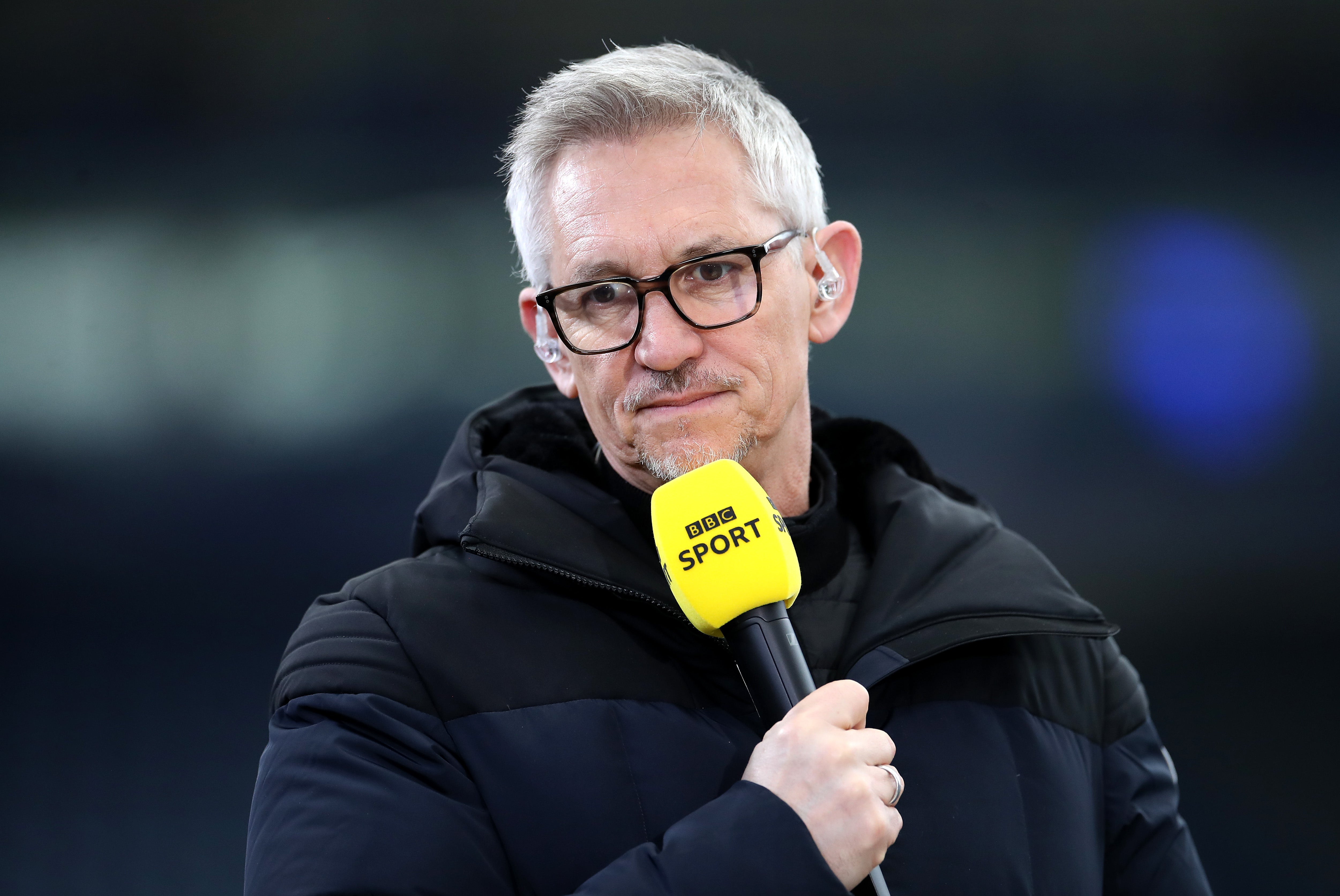The BBC is going to have to learn what Gary Lineker already knows – sport is political
The former England international has been stood down as presenter of ‘Match of the Day’ in a move that illustrates the power of the sport in society, as Miguel Delany reports


Your support helps us to tell the story
From reproductive rights to climate change to Big Tech, The Independent is on the ground when the story is developing. Whether it's investigating the financials of Elon Musk's pro-Trump PAC or producing our latest documentary, 'The A Word', which shines a light on the American women fighting for reproductive rights, we know how important it is to parse out the facts from the messaging.
At such a critical moment in US history, we need reporters on the ground. Your donation allows us to keep sending journalists to speak to both sides of the story.
The Independent is trusted by Americans across the entire political spectrum. And unlike many other quality news outlets, we choose not to lock Americans out of our reporting and analysis with paywalls. We believe quality journalism should be available to everyone, paid for by those who can afford it.
Your support makes all the difference.For a programme that was only ever supposed to be about the goals, Match of the Day has now become about something else entirely – not least the future of the programme, the BBC, impartiality in journalism and the very role of football within politics.
The news of Gary Lineker’s departure was quickly followed by Ian Wright, and then Alan Shearer, announcing that they will not be available this Saturday in solidarity. The levee has broken. Something had to give, especially with how politicised sport has become.
This is a new era, and one the BBC and its flagship football programme are going to have to adapt to and have a real think about.
There is a huge irony in the fact that this entire episode could initially have been cast as a case of football being used to distract the masses, in the manner in which the sport has repeatedly been criticised. A story that started with a disgraceful immigration bill being cynically (and typically) used by the Conservative government to divert attention from the fact that the country is falling apart somehow evolved into a mass discussion about a tweet from a football broadcaster. It was remarkable, and seemed to be another example of a country losing its perspective... until now.
As has tended to happen with the game of late, its truly national role means that it doesn’t just reflect society, but has now forced the country to look at itself anew – above all, at the national broadcaster’s approach to coverage.
This is how the game, far from being a distraction, has always been a vehicle for political self-expression.
It is perhaps fitting, if not outright inevitable, that it is Lineker who has provoked this argument. This is because, long before Twitter, he was a broadcaster who was willing to tackle grander issues. He helped to push broadcasting into a new era, and it is to his credit that he is now arguably better known for this than for being one of England’s greatest strikers. His approach was effusively taken up by Wright, who has been one of the great proponents of the idea of using football for the greater good.
This is a world in which a modern footballer such as Marcus Rashford could prove to be one of the government’s biggest problems.
And yet it is territory on which Match of the Day and other connected programmes have struggled to find their feet.
There are, of course, side discussions to be had over the exact wording of Lineker’s tweet, and on whether freelance contractors should be subject to the same guidelines as staff – not to mention the debate over the nature of those guidelines; but that’s what they are: side discussions.
This is now about something much bigger – and, as far as football goes, the role of its flagship programme.

That brand – one of the most powerful in sport – has now been detonated by the most shortsighted approach. A further irony is that, as politicised as the sport and some of its main broadcasters might have become, Match of the Day has generally sought to avoid doing so.
We are in a new football world, where nation states with problematic human rights records are using and taking over the sport and, far from any sort of scrutiny being applied to this, it is celebrated.
The issue is that these things can’t hold indefinitely. Eventually there has to be a break. That is what has happened here with Lineker, and now by extension with Match of the Day. A shortsighted and compromised solution that never fully fitted, and was never grounded in reality, eventually came apart.
It is not to the benefit of Match of the Day, not to the benefit of the BBC, and certainly not of benefit to the football supporter or casual viewer. It is like trying to avoid reality and truth rather than confronting it.
That is where we are now with this Lineker story, and it makes the reality going forward for Match of the Day – and, effectively, for the BBC’s entire football output – very uncertain.
A figure as influential as Wright pulling out in solidarity will cause further waves. How will it look for any presenter who agrees to front Match of the Day this weekend? How can the programme credibly discuss anything? Will it be pulled? It has changed the very nature of the programme.
This also comes down to an issue of trust. This is where the game is in 2023. It is inherently political, and has duly provoked a story that has gone far beyond football – but, crucially, may change how we see it.



Join our commenting forum
Join thought-provoking conversations, follow other Independent readers and see their replies
Comments